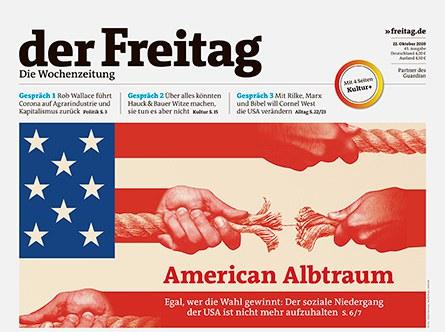Has the integration of the Islamic minority into France's democratic culture progressed in recent decades? The satirical magazine Charlie Hebdo seemed to think so when, in early September, it decided to republish cartoons of Mohammed that led to an Islamist assassination attempt in 2015 that killed 12 people. The reason for this was the trial that had recently begun because of this attack.

As early as September 25, there was an act of violence: unaware that Charlie Hebdo had changed address, two men of Pakistani origin seriously injured two employees of a radio station that is now based there in front of the former building of the magazine. They could be caught. Then, on October 16, an 18-year-old boy killed Samuel Paty, a teacher in the Paris suburb of Conflans-Sainte-Honorine, who had been showing the cartoons in a lesson on freedom of expression. The assassin's Chechen family came to France twelve years ago and had been granted political asylum. The perpetrator was shot dead by the police. The question remains why the security services, using their electronic capabilities, were unable to notice the digital prelude to the crime that radicalized imams had inspired.
Freedom of opinion is one of the greatest assets of democratic societies, it must be defended as such and, of course, also treated in schools. But she has recently experienced limitations. Social media and internet platforms now have to remove hate messages from the internet and display them in serious cases. The extent of the gray area where hate speech begins is a matter of debate, especially when it comes to artistic freedom. Undoubtedly, the vast majority of Muslims living in Europe swallow any anger they may see at Muhammad cartoons without thinking about retaliation. And yet it was only a matter of time before Islamist terror was staged again under the pretext of insulting Islam.
The noblest form of satire and jokes has always been sharp polemics against those in power. Today, politicians who are exposed to this, wisely, mostly ignore it with nonchalance. Or they go to court, like Turkish President Erdoğan, when he was linked to a goat named Chantal. It is different with jokes and parodies about minorities, which are often a matter of taste but can have dangerous effects under certain circumstances. This is especially the case when these minorities are not fully integrated. This is where the risk potential of multicultural societies becomes visible, towards which a hegemonic culture should – not least in its own interest – show itself to be very responsible.
Not only in France will students ask their teachers how such a horrific attack as that on Samuel Paty could have happened. One does not want to be in the shoes of these educators, especially since it is doubtful whether they were adequately prepared for a conflict of this explosive nature. There are usually Muslims in their classes, to whom they have to convey a message that is as acceptable as possible. They should not be allowed to take part in the discussion, as Samuel Paty did out of apparent caution.


